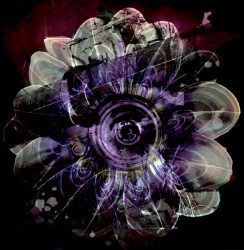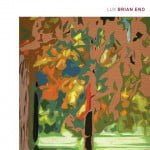Considering the musical background of the Godfather of Ambient / Generative Music, the introductory notes for Brian Eno‘s new album “Lux“ are extremely short.
Of course: for those interested, Brian Eno does not need any further introduction.
Compared to its two predecessors released on Warp Records, “Small Craft on a Milk Sea” and “Drums Between the Bells”, this release is quite different. No relatively short poppy collaboration tracks this time: “Lux“ is a slowly developing, 75 minute composition.
A return to “classic ambient” form, the kind of “music for thinking” Eno has created from the early eighties. A genre that since then has further developed and has diverted into a lot of different branches: drone, dark ambient, dance ambient, improv, soundscapes, field recordings. Each sub-genre with their own leading artists venturing into new territories.
But, at the very root of it all, there’s only one true Master.
“Lux” can be listened to in many different ways.
Looking back to the recent Warp-period releases, the album may seem like a massive and radical change of style –“One of Eno’s most ambitious works to date” as stated in the promo notes.
That’s a bit of nonsense, of course, since this work follows a straight line directly from his earlier ambient works like “Neroli” and the music recorded for installation projects like “Lightness (Music for the Marble Palace)”, “Music for White Cube”, “Music for Civic Recovery Centre” etc.
“Lux“ literally continues this tradition of installation soundtracks, since it is based on an installation“currently housed in the Great Gallery of the Palace of Venaria in Turin, Italy”.
Critics may argue that there’s nothing new going on, and that this basically is more of the same of what was created earlier. I would only partially agree with that, since I think there’s never enough of good music, whatever style. (With this ‘nothing new’ argument, Blues, Soul, or even Rock ‘n’ Roll music would probably never have existed. And in the end, quite a lot of ‘avant-garde’ music also sounds fashionably same-ish).
But on a more concentrated listen, an important difference from Eno’s earlier installation works slowly becomes apparent.
One of the basics of the generative ambient works was that it starts with a defined set of rules but then it is left to run its own course, without intervention – with the rules such that the probability of the same sounds repeating would almost be zero. Change is only gradual and almost inaudible to the casual listener. It’s the kind of soundscape that could last a lifetime.
“Lux“ starts from the same generative concept. The music only gradually seems to evolve, elements reappear in constantly changing patterns, and it has all the ambient calm it should have – yet this time it’s also clearly a composition. It’s divided into (twelve) sections that introduce a (slightly) different instrumentation and thus also a (slightly) different atmosphere.
With the Generative Music concept (and especially with the use of KOAN software), Brian Eno introduced a hitherto unknown way of presenting music: pre-recorded yet constantly changing. With “Lux“, there’s a new-found balance between generative and composed music.
The “Hand of the Master” is now allowed to manipulate the course of the composition.
And the Master he clearly still is.
There are many composers and musicians that build on the musical roots created by Brian Eno, but only few master this restrained way of composing.
Eno’s ambient music has always been about enhancing an atmosphere rather than about enhancing emotions.
As the name suggests, the atmosphere in “Lux“ is extremely light and peaceful. This is obviously related to the atmosphere of the palace these sounds were originally created for – as can be seen in this (unofficial) video from the Turin Palace installation.
Palace or not, it may bring light into your environment, too!
release date: november 12, 2012
EXTRA!!
SCAPE – iPad app
For those that can’t wait till november and/or owning an iPad, there’s also this promising-looking new ambient music app created by Brian Eno and Peter Chilvers.
Scape is the follow up to earlier generative music apps “Bloom”, “Trope” and “Air”.
Unlike these, Scape is iPad only – sadly there’s no iPhone/iPod version available (not even mentioning Android). I’m no iPad owner myself so, I can only dream away with this video below, which definitely looks very, very promising:



